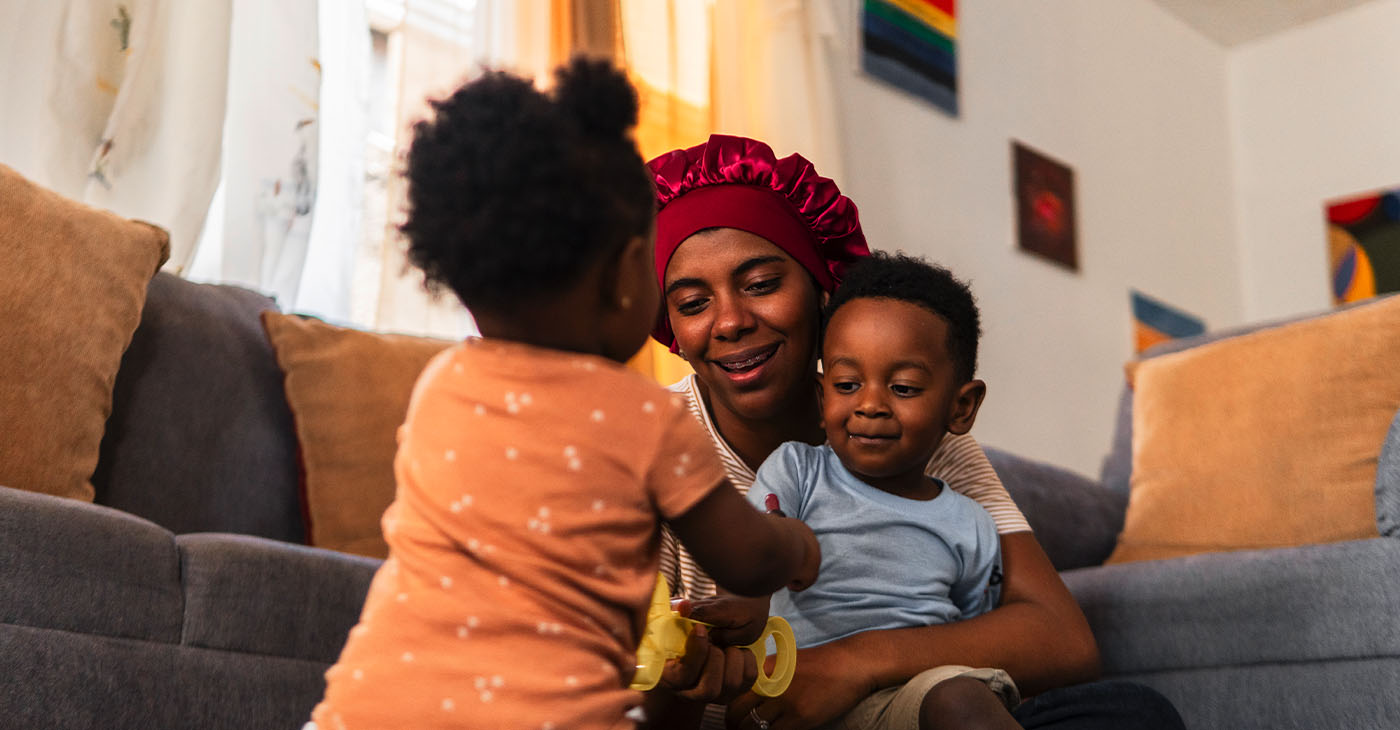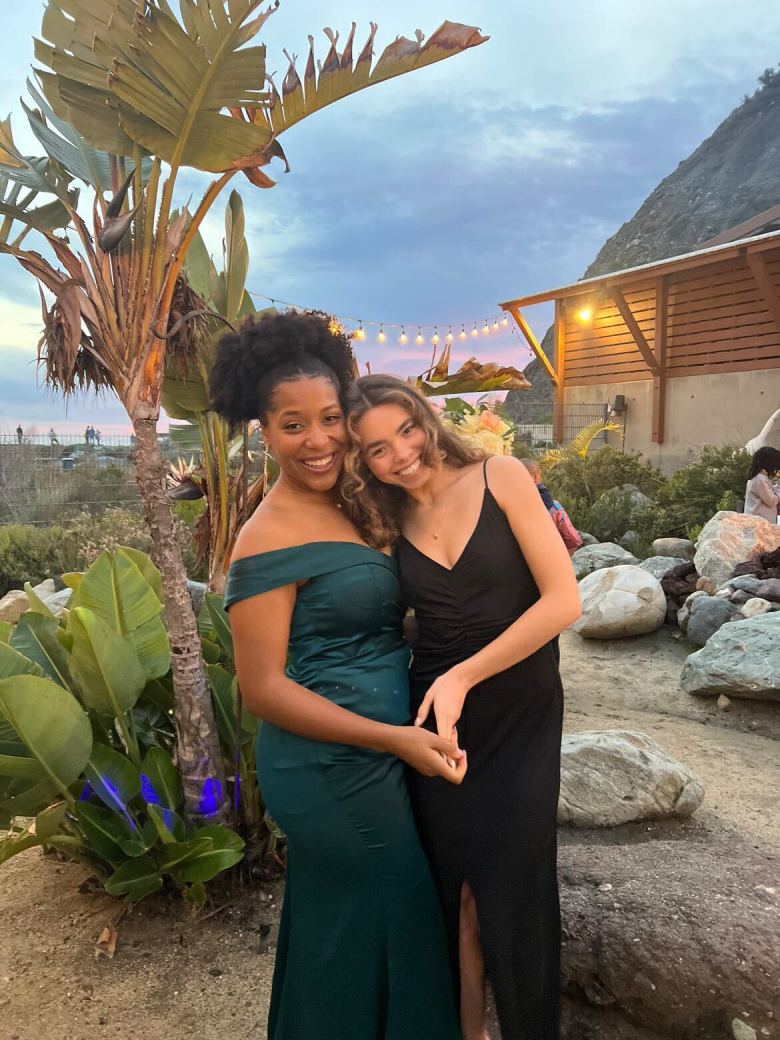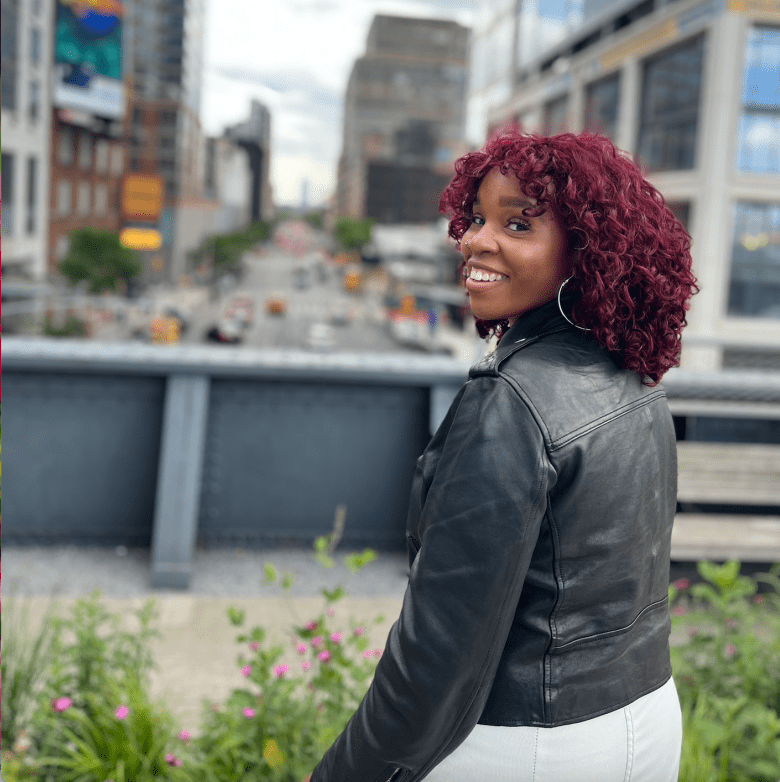#NNPA BlackPress
Black Americans On How to Have Joyful Friendships
By Anissa Durham, Word in Black U.S. adults reported higher levels of loneliness during the height of the pandemic. This was compounded by isolation, in-person restrictions, and virtual learning. Many young adults report feeling left out or like they missed out on new friends and experiences. But, as we move into a “new normal,” Americans are still […]
The post Black Americans On How to Have Joyful Friendships first appeared on BlackPressUSA.

By
U.S. adults reported higher levels of loneliness during the height of the pandemic. This was compounded by isolation, in-person restrictions, and virtual learning. Many young adults report feeling left out or like they missed out on new friends and experiences.
But, as we move into a “new normal,” Americans are still struggling to make new friends. Friendship is vital to feeling less lonely and building an emotional support system.
A report by Survey Center on American Life found differences in feelings of satisfaction based on the number of friends Americans have. Black folks expressed greater feelings of satisfaction than white people.
I’ve spent the entire year thinking about my friends. The strength of our relationship. Making new friends. And losing friends. As a young Black woman, I thought about the joy and pain of friendships, and the vitality of those relationships.
Who and what makes a good friend depends on who you ask. But the beauty of these relationships illuminates our lives and mental health. To show the depth of good friendships and the pain of bad friends, I spoke with five Black women and men about what friendship means to them, and what they’ve learned from these relationships.
Here are their stories.
Trinity Alicia, 23, Boston, Program coordinator
My closest friends are from college, undergrad at San Diego State. I have some post grad friendships that are in Boston. They’ve shown me so much about myself beyond being a student. I find them very valuable to my life.
Right now, I think a good friendship looks like accountability, check ins, good active listening, and just being in the loop. It takes a really good friend to have tough conversations and to understand the responsibility that they serve in your life. And to understand that their presence is powerful.
Since I graduated, I moved to a brand-new city where I knew no one and I live alone. So, I feel like it’s very easy to be lonely and kind of dwell on that quiet space. Now, I define friends as someone who gets you out of that quiet space, well-being, and centers my strengths and also pushes you to be greater.
I have a friend that I’ve known since I was 10-years-old. For him to see my growth is really cool, and we’re able to have different conversations than we were before. He channels health and well-being through difficult things like my parents’ divorce. He’s also a Black man, so there’s a lot of identity [conversations].
I think the loneliness doesn’t feel as strong. I don’t feel as alone when I’m communicating with my friends or when we’re making jokes and hanging out. I think their patience helps them to be a better friend to me.
Random calls, FaceTime’s, and audio messages are really something that I consider a love language. Audio message is really nice, it’s listening to your best friend’s podcast.
I identify as a Black American, and people that prioritize my identity especially in interracial friendships really helped me to feel safe. As I’m navigating a predominately white city, with historical stereotypes that are very anti-Black, it helps to know that friends are checking in.
It’s hard to make friends as an adult. Either I make friends, or I don’t. It’s definitely an inner conversation I have with myself. I want to see Black people, but I never know when is the next time I’ll see a Black person, which is so scary.
Taayoo Murray, 42, New York City, Freelance health writer
I’m very deliberate about how I define who my friends are, because I keep a very tight circle. My closest friends are Kathey, Rochelle, and Kimbrilee. The four of us are in a group chat. We’ve known each other for more than 25 years.
I prize loyalty. It’s not that you can’t criticize, it’s not that you can’t tell a friend they’re wrong, but I think loyalty is the main ingredient. I’m always there for my friends — always. I suppose that’s why I don’t have many because I’m so fiercely protective of my friends that I probably don’t have the bandwidth to have a ton of friends.
When Kathey had a miscarriage, I slept the entire night in the hospital with her. We were crying together. When Rochelle’s dad died, I dropped off my kids and went straight to the hospital where her dad died. Kim had a medical emergency once, and I made sure I was there with her.
My dad died when I was 25, I was really a daddy’s girl. Kathy broke the news to me. All of my girlfriends basically took over my life at that time.
I now know that they keep me sane. I kind of took my friendships for granted — it wasn’t until the pandemic that I realized how much I depended on them. Conversations that I have with my girlfriends, I don’t necessarily have with my sister, and I don’t have with my mom. It’s like a real safe space. There’s absolutely nothing that we don’t discuss in our group. We talk about anything and everything.
This article originally appeared in San Diego Voice and Viewpoint.
The post Black Americans On How to Have Joyful Friendships first appeared on BlackPressUSA.
#NNPA BlackPress
LIHEAP Funds Released After Weeks of Delay as States and the District Rush to Protect Households from the Cold
BLACKPRESSUSA NEWSWIRE — The federal government has released $3.6 billion in home heating assistance after a delay that left states preparing for the start of winter without the program’s annual funding.

By Stacy M. Brown
Black Press USA Senior National Correspondent
The federal government has released $3.6 billion in home heating assistance after a delay that left states preparing for the start of winter without the program’s annual funding. The Low-Income Home Energy Assistance Program, known as LIHEAP, helps eligible households pay heating and cooling bills. The release follows a shutdown that stretched 43 days and pushed agencies across the country to warn families of possible disruptions.
State officials in Minnesota, Kansas, New York, and Pennsylvania had already issued alerts that the delay could slow the processing of applications or force families to wait until December for help. In Pennsylvania, more than 300,000 households depend on the program each year. Minnesota officials noted that older adults, young children, and people with disabilities face the highest risk as temperatures fall.
The delay also raised concerns among advocates who track household debt tied to rising utility costs. National Energy Assistance Directors Association Executive Director Mark Wolfe said the funds were “essential and long overdue” and added that high arrearages and increased energy prices have strained families seeking help.
Some states faced additional pressure when other services were affected by the shutdown. According to data reviewed by national energy advocates, roughly 68 percent of LIHEAP households also receive nutrition assistance, and the freeze in multiple programs increased the financial burden on low-income residents. Wolfe said families were placed in “an even more precarious situation than usual” as the shutdown stretched into November.
In Maryland, lawmakers urged the Trump administration to release funds after the state recorded its first cold-related death of the season. The Maryland Department of Health reported that a man in his 30s was found outdoors in Frederick County when temperatures dropped. Last winter, the state documented 75 cold-related deaths, the highest number in five years. Rep Kweisi Mfume joined more than 100 House members calling for immediate federal action and said LIHEAP “is not a luxury” for the 100,000 Maryland households that rely on it. He added that seniors and veterans would be placed at risk if the program remained stalled.
Maryland Gov. Wes Moore used $10.1 million in state funds to keep benefits moving, but noted that states cannot routinely replace federal dollars. His administration said families that rely on medical equipment requiring electricity are particularly vulnerable.
The District of Columbia has already mapped out its FY26 LIHEAP structure in documents filed with the federal government. The District’s plan shows that heating assistance, cooling assistance, weatherization, and year-round crisis assistance operate from October 1 through September 30. The District allocates 50 percent of its LIHEAP funds to heating assistance, 10 percent to cooling, 13 percent to year-round crisis assistance, 15 percent to weatherization, and 10 percent to administrative costs. Two percent is used for services that help residents reduce energy needs, including education on reading utility bills and identifying energy waste.
The District’s plan lists a minimum LIHEAP benefit of $200 and a maximum of $1,800 for both heating and cooling assistance. Crisis benefits are provided separately and may reach up to $500 when needed to resolve an emergency. The plan states that a household is considered in crisis if it has been disconnected from energy service, if heating oil is at 5 percent or less of capacity, or if the household has at least $200 owed after the regular benefit is applied.
The District’s filing notes that LIHEAP staff conduct outreach through community meetings, senior housing sites, Advisory Neighborhood Commissions, social media, posters, and mass mailings. The plan confirms that LIHEAP applicants can apply in person, by mail, by email, or through a mobile-friendly online application and that physically disabled residents may request in-home visits.
As agencies nationwide begin distributing the newly released funds, states continue working through large volumes of applications. Wolfe said LIHEAP administrators “have been notified that the award letters have gone out and the states can begin to draw down the funds.”
#NNPA BlackPress
Seven Steps to Help Your Child Build Meaningful Connections
BLACKPRESSUSA NEWSWIRE — Swinging side by side with a friend on the playground. Sharing chalk over bright, colorful sidewalk drawings. Hiding behind a tree during a spirited game of hide-and-seek. These simple moments between children may seem small, but they matter more than we think

By Niyoka McCoy, Ed.D., Chief Learning Officer, Stride/K12
Swinging side by side with a friend on the playground. Sharing chalk over bright, colorful sidewalk drawings. Hiding behind a tree during a spirited game of hide-and-seek. These simple moments between children may seem small, but they matter more than we think: They lay the foundation for some of life’s most important skills.
Through everyday play, young children begin learning essential social and emotional skills like sharing, resolving conflicts, showing empathy, and managing their emotions. These social skills help shape emotional growth and set kids up for long-term success. Socialization in early childhood isn’t just a “nice-to-have”—it’s essential for development.
Yet today, many young children who haven’t yet started school aren’t getting enough consistent, meaningful interaction with peers. Research shows that there’s a decline in active free play and peer socialization when compared to previous generations.
There are many reasons for this. Children who are home with a parent during the day may spend most of their time with adults, limiting opportunities for peer play. Those in daycare or preschool may have restricted free play, and large classrooms can reduce supervision and social coaching. Some children live in rural areas, are homebound due to illness, have full schedules, or rely on screens to fill their playtime. And for some families, finding other families with young children to connect with isn’t easy.
While these challenges can feel significant, opportunities for connection still exist in every community. Families can take simple steps to help children build friendships, create a sense of belonging, and strengthen social skills. Here are some ideas to get started:
- Storytime sessions at libraries or local bookstores
- Community offerings such as parent-child workshops, art, music, gymnastics, swimming, or sports programs
- Weekly events at children’s museums, which may include art projects, music workshops, or science experiments
- Outdoor exploration, where kids can play with peers
- Local parenting groups that organize playdates and group activities
- Volunteer opportunities where children can participate, such as pet adoption events or packing meals at a food bank
- Classes for kids at local businesses, including hardware, grocery, or craft stores
Some of these community activities are free or low-cost and give kids the chance to build friendships and practice social skills. Parents can also model positive social behavior by interacting with other parents and encouraging their children to play with their peers.
These may seem like small moments of connection, but they can have a powerful impact. Every time your child shares a toy, plays make-believe with peers, or races a friend down the slide, they’re not just playing—they’re learning the skills that build confidence, empathy, and lasting friendships. And it’s good for you, too. Creating intentional opportunities for play also helps you strengthen your own network of parents who can support one another as your children grow together.
#NNPA BlackPress
Seven Steps to Help Your Child Build Meaningful Connections
BLACKPRESSUSA NEWSWIRE — Swinging side by side with a friend on the playground. Sharing chalk over bright, colorful sidewalk drawings. Hiding behind a tree during a spirited game of hide-and-seek. These simple moments between children may seem small, but they matter more than we think

By Niyoka McCoy, Ed.D., Chief Learning Officer, Stride/K12
Swinging side by side with a friend on the playground. Sharing chalk over bright, colorful sidewalk drawings. Hiding behind a tree during a spirited game of hide-and-seek. These simple moments between children may seem small, but they matter more than we think: They lay the foundation for some of life’s most important skills.
Through everyday play, young children begin learning essential social and emotional skills like sharing, resolving conflicts, showing empathy, and managing their emotions. These social skills help shape emotional growth and set kids up for long-term success. Socialization in early childhood isn’t just a “nice-to-have”—it’s essential for development.
Yet today, many young children who haven’t yet started school aren’t getting enough consistent, meaningful interaction with peers. Research shows that there’s a decline in active free play and peer socialization when compared to previous generations.
There are many reasons for this. Children who are home with a parent during the day may spend most of their time with adults, limiting opportunities for peer play. Those in daycare or preschool may have restricted free play, and large classrooms can reduce supervision and social coaching. Some children live in rural areas, are homebound due to illness, have full schedules, or rely on screens to fill their playtime. And for some families, finding other families with young children to connect with isn’t easy.
While these challenges can feel significant, opportunities for connection still exist in every community. Families can take simple steps to help children build friendships, create a sense of belonging, and strengthen social skills. Here are some ideas to get started:
- Storytime sessions at libraries or local bookstores
- Community offerings such as parent-child workshops, art, music, gymnastics, swimming, or sports programs
- Weekly events at children’s museums, which may include art projects, music workshops, or science experiments
- Outdoor exploration, where kids can play with peers
- Local parenting groups that organize playdates and group activities
- Volunteer opportunities where children can participate, such as pet adoption events or packing meals at a food bank
- Classes for kids at local businesses, including hardware, grocery, or craft stores
Some of these community activities are free or low-cost and give kids the chance to build friendships and practice social skills. Parents can also model positive social behavior by interacting with other parents and encouraging their children to play with their peers.
These may seem like small moments of connection, but they can have a powerful impact. Every time your child shares a toy, plays make-believe with peers, or races a friend down the slide, they’re not just playing—they’re learning the skills that build confidence, empathy, and lasting friendships. And it’s good for you, too. Creating intentional opportunities for play also helps you strengthen your own network of parents who can support one another as your children grow together.
-

 Activism3 weeks ago
Activism3 weeks agoOakland Post: Week of November 12 – 18, 2025
-

 Activism4 weeks ago
Activism4 weeks agoOakland Post: Week of November 5 – 11, 2025
-

 Activism2 weeks ago
Activism2 weeks agoIN MEMORIAM: William ‘Bill’ Patterson, 94
-

 Activism3 weeks ago
Activism3 weeks agoHow Charles R. Drew University Navigated More Than $20 Million in Fed Cuts – Still Prioritizing Students and Community Health
-

 #NNPA BlackPress3 weeks ago
#NNPA BlackPress3 weeks agoThe Perfumed Hand of Hypocrisy: Trump Hosted Former Terror Suspect While America Condemns a Muslim Mayor
-

 #NNPA BlackPress3 weeks ago
#NNPA BlackPress3 weeks agoProtecting Pedophiles: The GOP’s Warped Crusade Against Its Own Lies
-

 Bay Area3 weeks ago
Bay Area3 weeks agoNo Justice in the Justice System
-

 #NNPA BlackPress4 weeks ago
#NNPA BlackPress4 weeks ago2026 Subaru Forester Wilderness Review: Everyday SUV With Extra Confidence























































